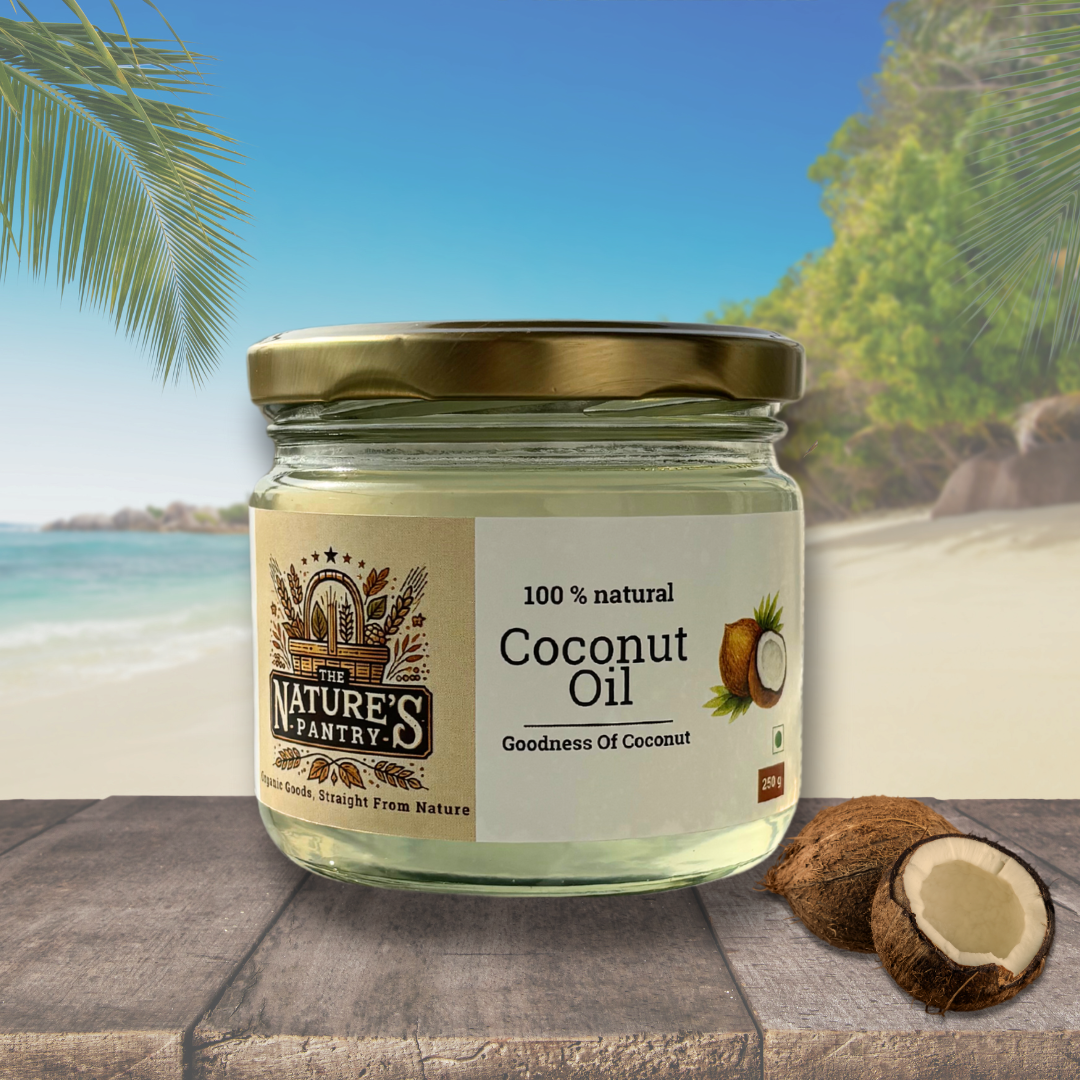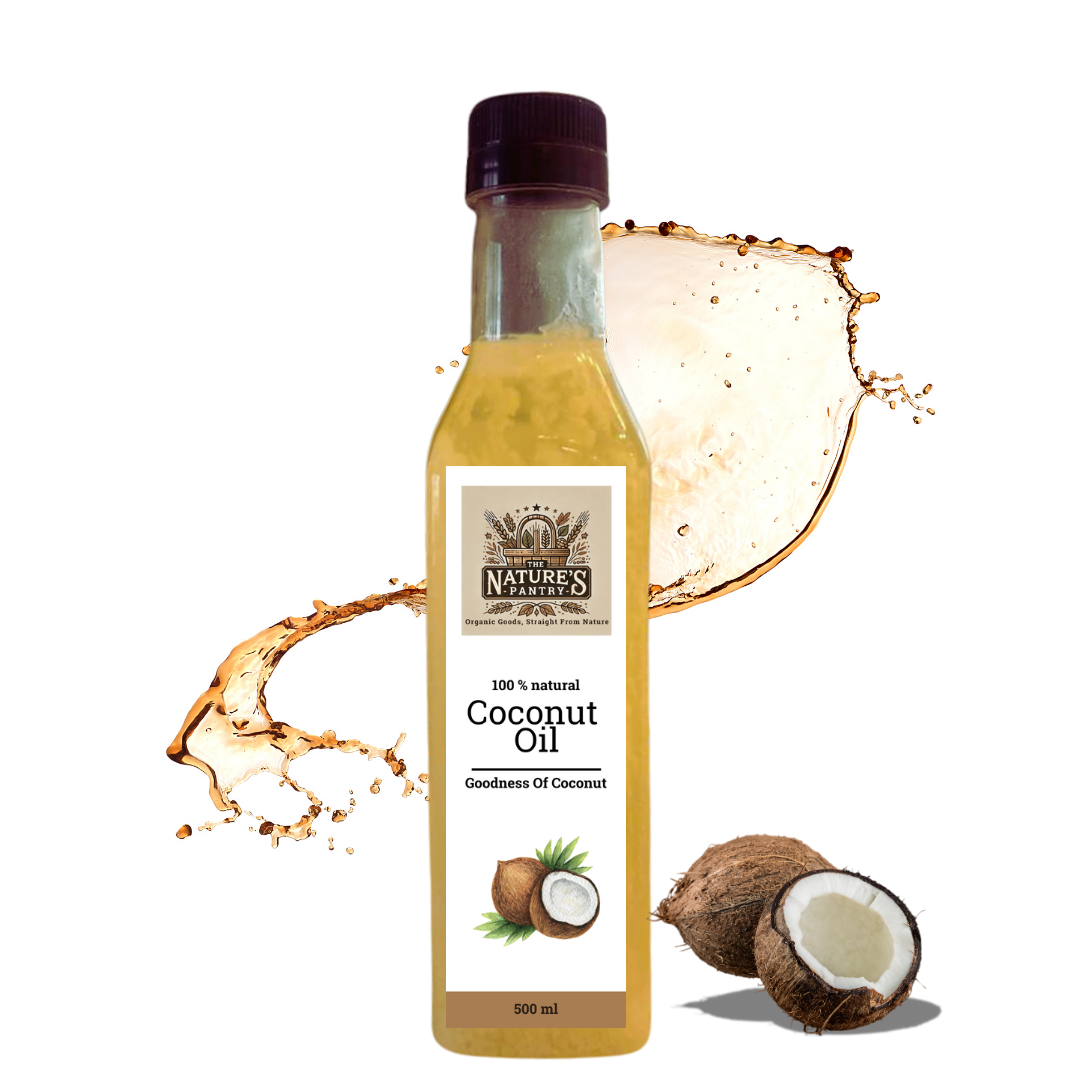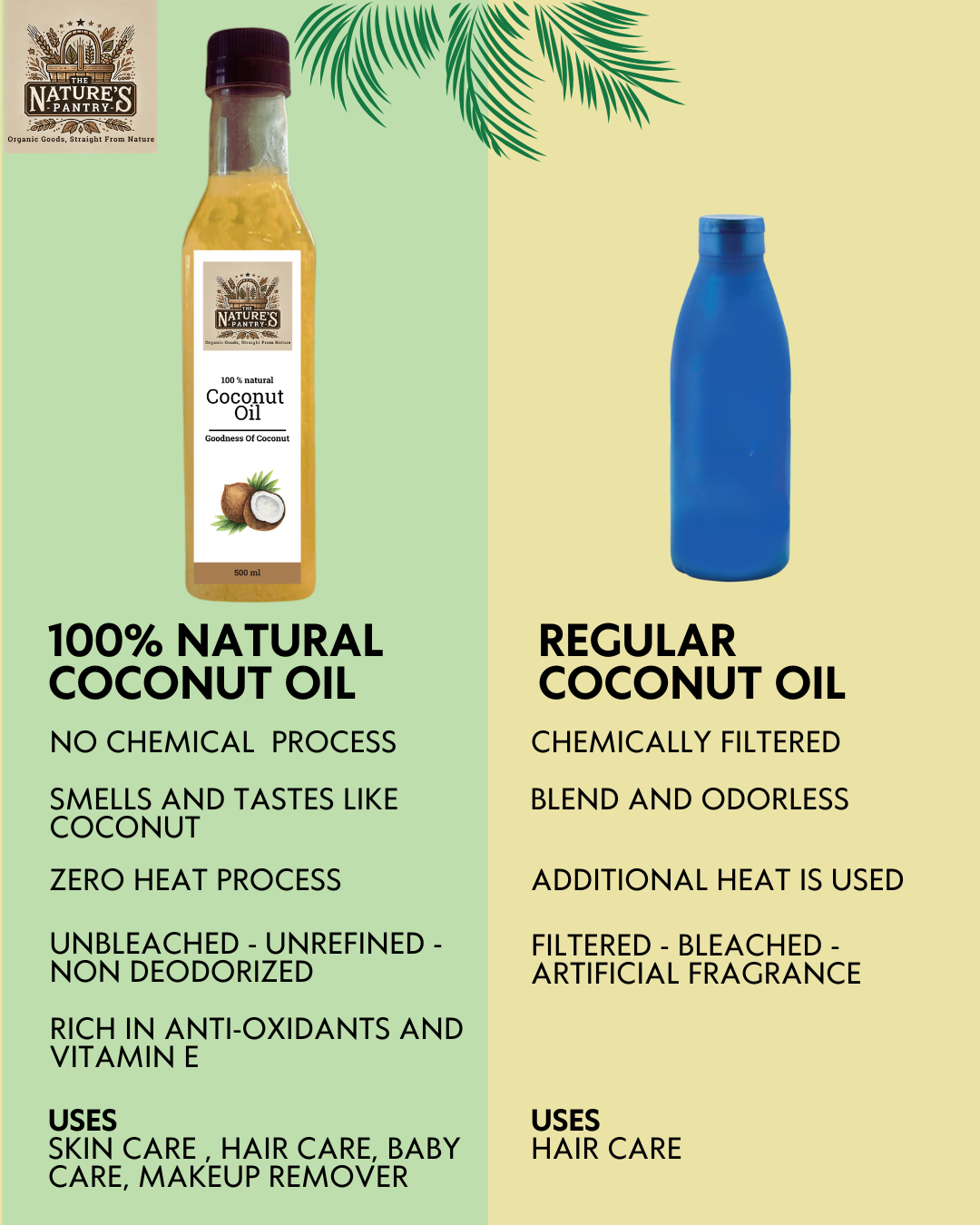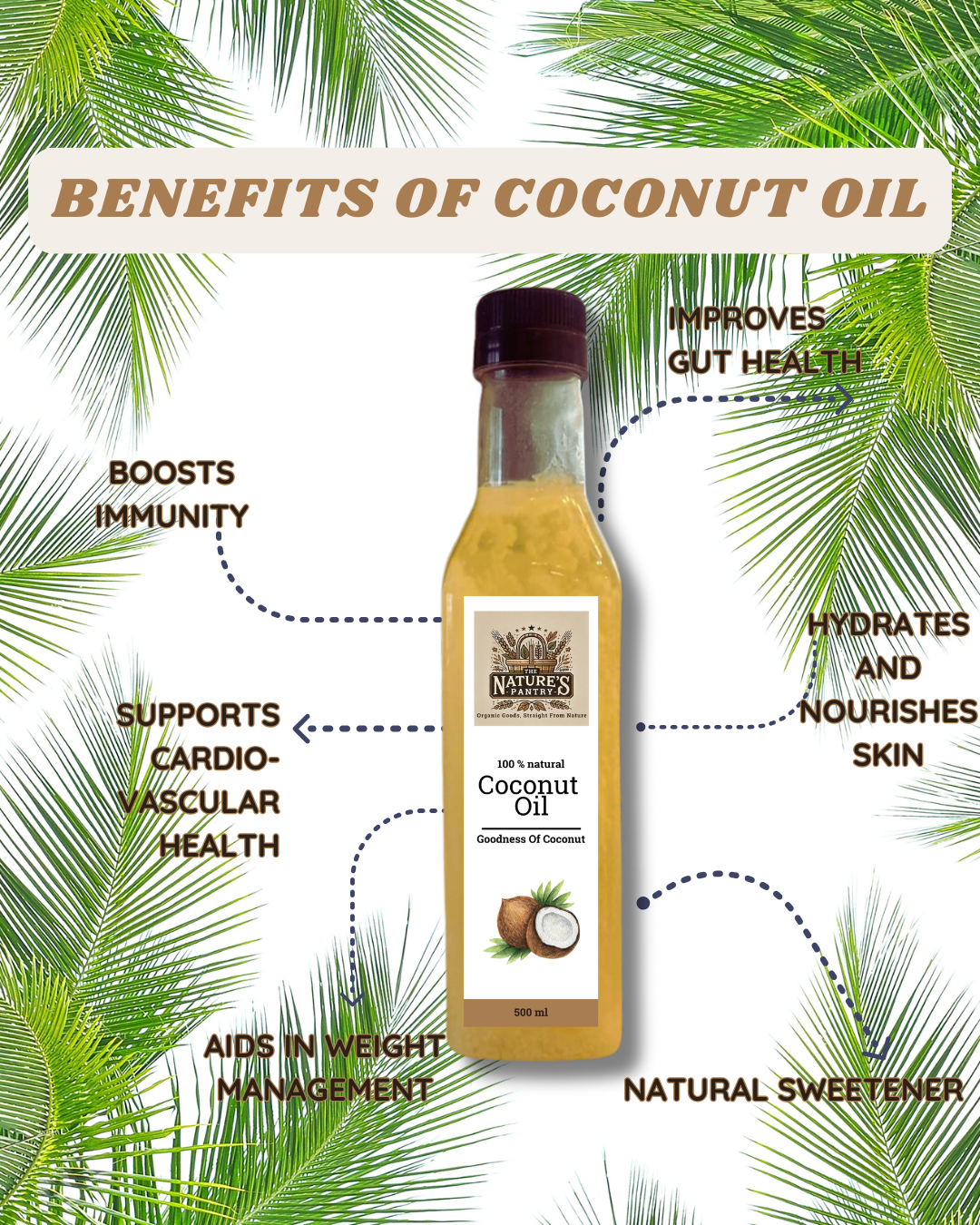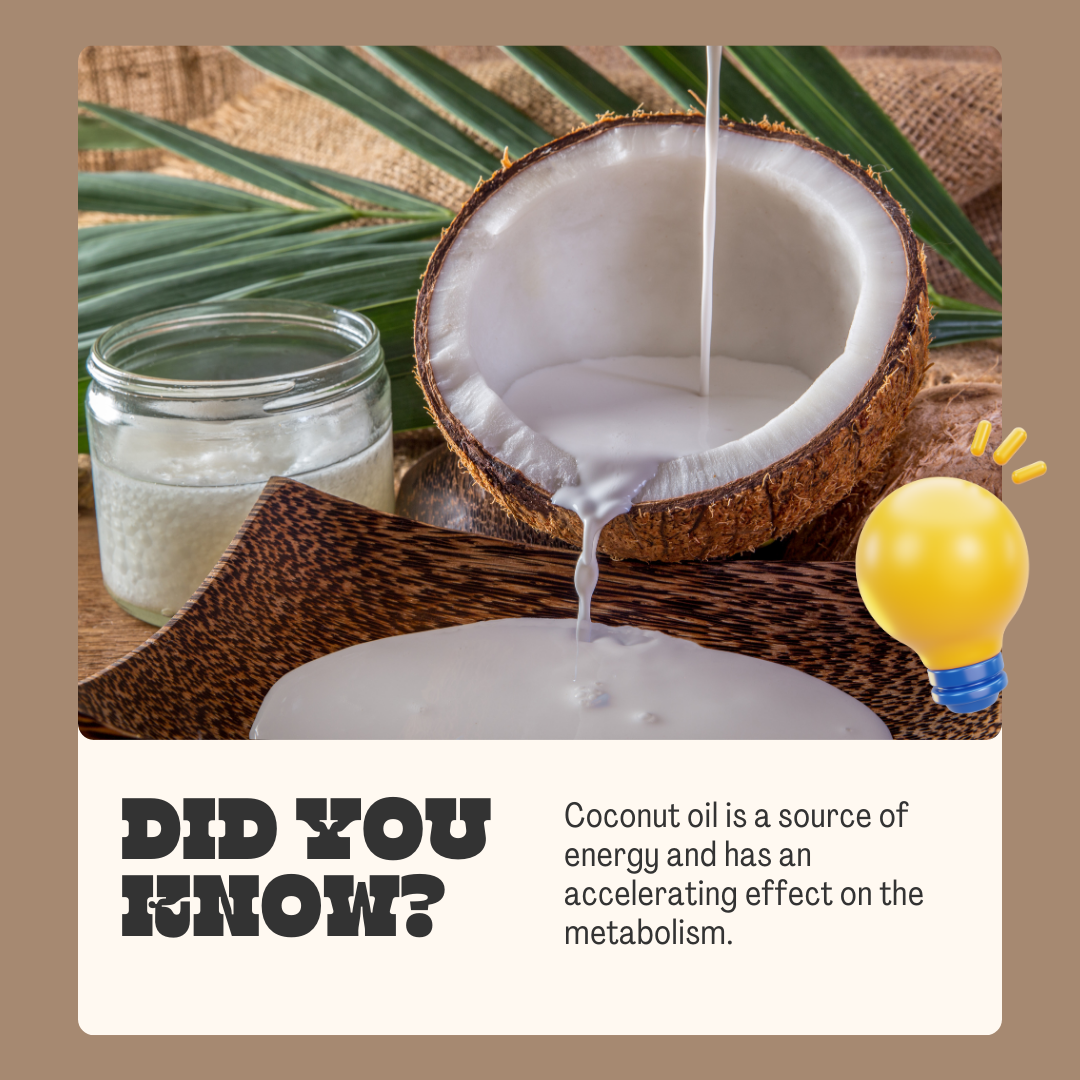The Ultimate Guide to Using Cold-Pressed Coconut Cooking Oil: Benefits, Uses & Recipes
Share
 Cold-pressed coconut cooking oil has gained immense popularity for its health benefits, versatility, and unique flavor. Whether you’re looking for a healthier cooking oil alternative or want to explore traditional and modern recipes, cold-pressed coconut cooking oil is an excellent choice.
Cold-pressed coconut cooking oil has gained immense popularity for its health benefits, versatility, and unique flavor. Whether you’re looking for a healthier cooking oil alternative or want to explore traditional and modern recipes, cold-pressed coconut cooking oil is an excellent choice.
Why Choose Cold-Pressed Coconut Cooking Oil?
Cold-pressed coconut cooking oil is extracted from fresh coconut meat without the use of heat or chemicals, preserving its nutrients, antioxidants, and natural aroma. Unlike refined oils, cold-pressed virgin coconut oil retains its purity, making it a wholesome choice for cooking and baking.
Health Benefits of Cold-Pressed Coconut Cooking Oil
- Boosts Metabolism: MCTs in cold-pressed coconut cooking oil may help with fat burning and weight management.
- Rich in Healthy Fats: Supports brain function and provides sustained energy.
- Antimicrobial Properties: Helps fight infections and improves gut health.
- Supports Heart Health: When consumed in moderation, it may improve cholesterol levels.
- Good for Skin & Hair: Besides cooking, it nourishes the skin and scalp.
How to Use Cold-Pressed Coconut Cooking Oil in Your Kitchen
Cold-pressed coconut cooking oil is highly versatile and can be used for various cooking methods:
1. Sautéing & Stir-Frying
Cold-pressed coconut oil’s high smoke point makes it ideal for cooking vegetables, eggs, and meats without breaking down into harmful compounds.
2. Deep Frying
Although cold-pressed coconut oil has a moderate smoke point (around 350°F/177°C), it remains stable during frying, making it a healthier option compared to refined oils.
3. Baking
Replace butter or vegetable oils with cold-pressed coconut cooking oil in cakes, cookies, and muffins for a mild coconut flavor and added nutrition.
4. Indian & Asian Cuisine
Cold-pressed coconut cooking oil is a staple in South Indian and Thai dishes. Use it in curries, chutneys, and rice preparations for an authentic taste.
5. Bulletproof Coffee & Smoothies
Add a spoonful of cold-pressed coconut cooking oil to your morning coffee or smoothie for an energy boost and improved cognitive function.
Easy Recipes Using Cold-Pressed Coconut Cooking Oil
1. Cold-Pressed Coconut Oil Stir-Fried Vegetables
Ingredients:
- 2 cups mixed vegetables (bell peppers, broccoli, carrots)
- 1 tbsp cold-pressed coconut cooking oil
- 1 tsp garlic (minced)
- ½ tsp salt
- ½ tsp pepper
- 1 tsp soy sauce (optional)
Instructions:
- Heat cold-pressed coconut oil in a pan.
- Add garlic and sauté for a few seconds.
- Toss in vegetables and stir-fry for 5-7 minutes.
- Season with salt, pepper, and soy sauce. Serve hot!
2. Cold-Pressed Coconut Oil Banana Bread
Ingredients:
- 2 ripe bananas (mashed)
- 1/3 cup cold-pressed coconut cooking oil
- ½ cup honey or maple syrup
- 2 eggs
- 1 ¾ cups whole wheat flour
- 1 tsp baking soda
- ½ tsp salt
- 1 tsp vanilla extract
Instructions:
- Preheat oven to 350°F (177°C). Grease a loaf pan with cold-pressed coconut oil.
- In a bowl, mix bananas, cold-pressed coconut oil, and sweetener.
- Add eggs and vanilla extract.
- Mix in flour, baking soda, and salt.
- Pour batter into the pan and bake for 50 minutes. Enjoy!
Tips for Choosing the Best Cold-Pressed Coconut Cooking Oil
- Cold-Pressed & Unrefined: Retains nutrients and a natural coconut aroma.
- Organic & Non-GMO: Free from harmful chemicals and pesticides.
- Check the Packaging: Store in a glass jar to prevent contamination.
Conclusion
Cold-pressed coconut cooking oil is an excellent addition to any kitchen, offering health benefits, delicious flavor, and versatility. Whether you’re frying, baking, or making traditional recipes, this oil can enhance your meals while promoting overall well-being.
Try incorporating cold-pressed coconut cooking oil into your daily cooking and experience its amazing benefits firsthand!


